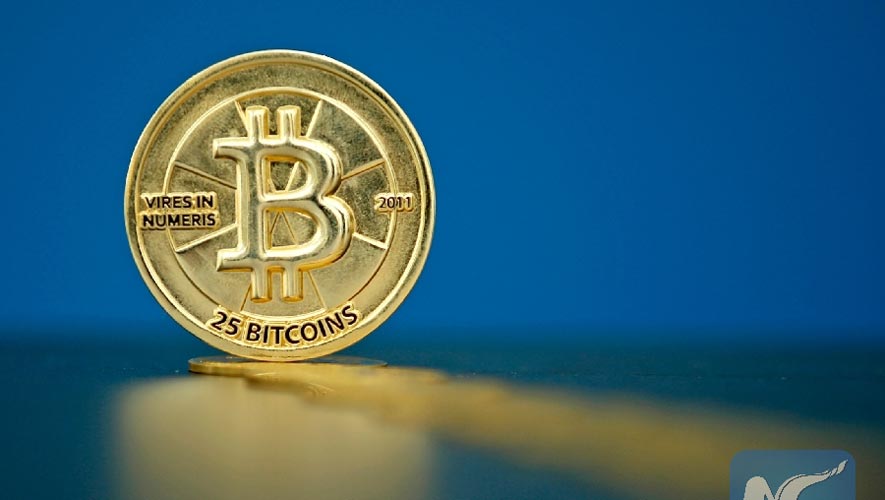The woman sitting behind the desk at a Phnom Penh travel agency points proudly to the sign on the wall behind her that reads, “Bitcoin Accepted Here”. She is quick to add that she sells the cryptocurrency. When a customer asks whether bitcoin is legal in Cambodia she smiles. “It’s not legal and it’s legal,” she says.
For the latest Cambodian Business news, visit Khmer Times Business
She says what she is doing is OK and has never heard from the authorities.
“It’s about the type of [bitcoin] wallet you use,” she says.
She adds that business owners in Cambodia are free to accept bitcoin as payment. “It’s no problem.”
According to the National Bank of Cambodia (NBC), the purchase and trade of bitcoin and other crypto currencies is illegal. And the NBC has issued warnings against the use of cryptocurrency in Cambodia.
Blockchain system
However, that stance might be softening as the bank last month rolled out an interbank blockchain payment system called Bakong.
Whether it remains unclear this is legal or illegal has not stopped the proliferation of bitcoin use and acceptance in the Kingdom of Cambodia.
For local bitcoin users and traders, the technology all seems moot anyway.
How can a country or a central bank control a currency that has no central structure and transcends borders and traditional banking structures?
And despite the tough language from the NBC, businesses around the country, including hotels, restaurants, travel agencies and cafes openly accept bitcoin as a payment option.
“The whole idea of local legal jurisdiction over bitcoin is a misinterpretation of bitcoin,” says Chris Taylor, an early adopter of bitcoin in Asia who is an active trader living in Phnom Penh.
Securely decentralised
“All [local authorities] can do is legislate on transactions in their jurisdiction into local currency.”
That’s because bitcoin is a securely decentralised peer-to-peer digital money system, according to CryptoAsia a Cambodia-based crypto community that advocates bitcoin trading.
“With Bitcoin, no single entity controls the system and there is no third-party risk.
“The network is decentralised (similar to the internet itself) and nearly impossible to defraud or compromise,” Taylor adds.
As in many countries in Asia, the NBC has opposed digital currencies in the past citing the lack of an e-commerce law and cybersecurity risks.
Electronic contracts
That might soon change, however.
An e-commerce bill that will put in place rules for electronic contracts and other online activity such as fund transfers, electronic financial transactions and other potential issues, including data protection and privacy, is expected to be signed into law this year.
National payment
There is no mention of crypto currency in the draft law, but the national bank announced in 2017 that blockchain – the technology behind bitcoin – will be incorporated into its national payment system sometime this year.
“[The e-commerce law] does not have anything about crypto,” says Christopher McCarthy, who worked on the legislation.
The Mango Tango Asia chief executive officer adds: “The NBC issued a prakas last year forbidding the use of cryptocurrencies in the Kingdom. But then they organised a conference about it and are now rolling out an interbank settlement tool using blockchain [technology].”
Online exchanges
Around the corner from the travel agency a man working behind the counter at the Wing money transfer and payment shop quickly denies that Wing sells bitcoin.
“No, no bitcoin here,” he says. It is clear that bitcoin is not a subject he wants to discuss.
His answer is correct, in a way.
Wing does not sell bitcoin directly.
The truth, however, is, it is possible to trade bitcoin through Wing, Western Union, Moneygram and True Money by using online exchanges such as Coinmama, according to locals who do it and the online exchanges such as localbitcoins.com. And it is fairly straightforward.
You find a person on the exchange selling bitcoins locally and pay them through one of the money transfer offices. They then send back bitcoins to your account.
The central bank has said it wants to guard citizens against the many crypto currency scams that have arisen in recent years.
It says that as a protective measure, it has blocked Cambodian banks from holding accounts for those who engage in crypto-related activities. In June of 2018, NBC, the Securities and Exchange Commission of Cambodia and the General Commissariat of National Police issued a joint statement in this regard that was posted on NBC’s Facebook page.
While the statement made mention of several types of coins it did not mention bitcoin directly. But it did say that any entity conducting transactions in crypto currencies or advertising them would face legal action.
Still, NBC is studying it, as are many countries looking to establish digital currencies as the world moves toward going cashless. Many are watching to see whether the bank’s current perception changes as cryptocurrencies gain legitimacy worldwide.
Like Cambodia, Singapore is exploring a blockchain banking system.
The People’s Bank of China (PBoC) announced last week that it is ready to roll out a national cryptocurrency in that country. China is already a largely cashless society where most transactions are paid through smart phones. The new currency will be centralised under the PBoC and then distributed to commercial banks across China.
A digital wallet
For bitcoin advocates, making the currency illegal doesn’t make a lot of sense.
Neither does putting crypto under the control of central banks bewcause the whole idea is to be independent of central banks.
“It is anonymous from private bank experiments and central bank experiments. It’s a financial system that exists in another dimension from central banks,” Taylor says
He says there have been scam crypto coins – offshoots of bitcoin – and they have given bitcoin a bad reputation. But bitcoin is not one of those scams.
He says criticism of bitcoin comes mostly from people who don’t get it. “Bitcoin came from nowhere and traditional economists hated it,” Taylor says.
Taylor says it is almost impossible to use bitcoins for nefarious purposes because all transactions are on the blockchain ledger.
‘‘Criminal money’
Blockchain is the technology behind crypto currencies.
“It’s not the way to transfer criminal money,” he says.
“Out of all of the financial scandals, have you ever heard of anyone using bitcoin? No.”
He adds that bitcoin was not designed to be untraceable. It is designed to be a private bank.
“It’s like a digital safe deposit box in Switzerland. You have the key and no one knows what is in it. But when you open it they know it,” he says.
Bitcoin is gaining popularity in Phnom Penh. There is a “Coin Cafe” near
the Tuol Sleng Genocide Museum where bitcoin is traded and community meet-ups are held.
There is a Facebook group called CryptoAsia with more than 1,000 members that provides information on how to obtain bitcoin and where to use it.
“We believe the government will eventually soften its stance on Bitcoin business,” CryptoAsia writes.
“But first, the private sector must demonstrate the value of digital currencies to improving Cambodian livelihoods.
“Let’s hope more local businesses and start-ups become inspired to pursue blockchain technology.”
A crypto currency is a digital asset designed to work as a medium of exchange that uses strong cryptography to secure financial transactions, control the creation of additional units, and verify the transfer of assets.
Crypto currencies use decentralised control as opposed to centralized digital currency and central banking systems.
The decentralised control of each cryptocurrency works through distributed ledger technology, typically a blockchain, that serves as a public financial transaction database.
Bitcoin, first released as open-source software in 2009, is generally considered the first decentralised cryptocurrency.
Since its release, more than 4,000 altcoins, optional variants of bitcoin, have been created.




